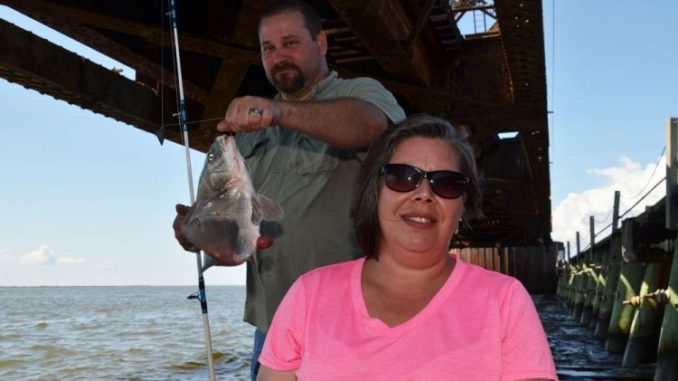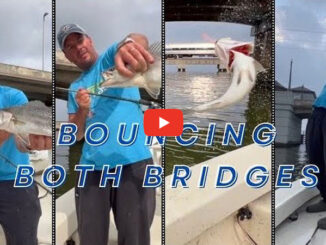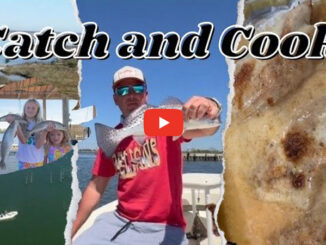
Jeb and Tina Ard weren’t always catch-and-release, fish-for-fun anglers. Early in their marriage, the couple, both 43, fished for food. Especially for Jeb, fishing meant eating.
He grew up deep in the country, near Cranky Corner (near Uneedus in Tangipahoa Parish, if that helps). “I grew up dirt poor. Many a time, all we had to eat was bread and syrup.
“Sometimes we got molasses instead of syrup,” he shuddered at the thought. “I was a hillbilly.
“Growing up, we ate a lot of freshwater fish: bream, bass, white perch and mud cats. We fished creeks and farm ponds. After we married, I got introduced to saltwater fishing. I’ve never been skunked saltwater fishing. But I’ve been skunked thousands of times in freshwater.”
“In saltwater you always catch something,” chimed in Tina, who grew up between Franklinton and Enon in Washington Parish, very near where they live now. “Even hardheads are fun to reel in. It’s relaxing.
“We started fishing because we were looking for something that we both liked doing together. Jebbie hunts, but I don’t.”
When they started fishing, they did it with a vengeance. They fished some for drum and redfish in Rigolets Pass, but their specialty was fishing for speckled trout and white trout under camp dock lights in Lake Pontchartrain, the Rigolets and Lake Catherine.
They regularly fished three nights a week.
“We would load the boat gunnel-full,” Jeb noted matter-of-factly. “We would just load up.”
As if that wasn’t enough, they would fish cut bait for sharks at the “gas rig” 3 ½ miles into Lake Borgne from the mouth of Rigolets Pass.
“We would catch Atlantic sharpnoses, bulls, blacktips and a few bonnetheads,” said Jeb. “We always threw the bonnetheads back; their meat was orange and we wouldn’t eat them because of the color.
“We would steak the sharks, skin-on, then bake or grill them. The skin peels right off when the meat gets soft.”
As a young couple on a tight budget, they ate a lot of fish, explained Tina. “Three times a week,” grinned her husband.
Stringent new regulations put the kibosh on their shark fishery. Then, people gradually began to turn off their dock lights at night. The finishing blow came with Hurricane Katrina, which took most of the camps, as well as their docks and lights.
Instead of quitting fishing, they began fishing under bridges during the day, an activity that clicked for the couple. “Jebbie hates the sun,” intoned Tina, “so that’s why he likes fishing in the shade under bridges.”
The big change occurred about 10 years ago when they started fishing strictly for fun, and began throwing everything back.
“I got tired of cleaning them,” he grunted. “Then I got tired of eating them.
“Bottom fishing like this is simple. You just throw your bait out and you don’t have to work it or anything. It’s relaxing.”
“You never know what you’re going to catch,” trilled Tina. It could be a stingray. It could be anything. I just love to reel them in.”

